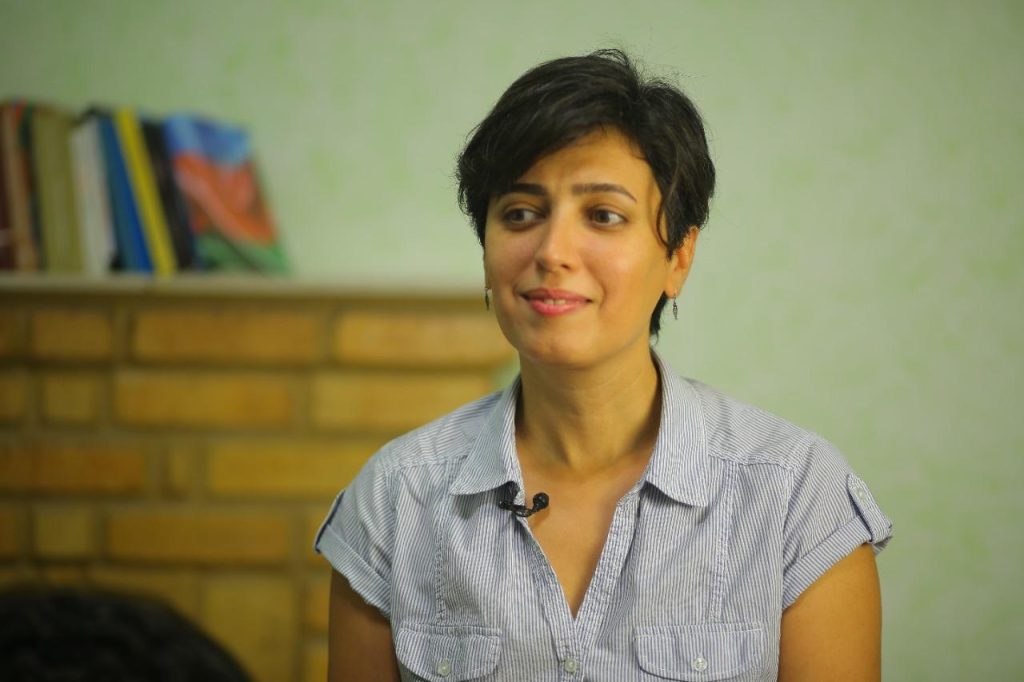“Before our engagement, my cousin and I were good friends.” Cousin marriages in Azerbaijan
Cousin marriages in Azerbaijan
“One day, my mom came and said that my father had made arrangements with my aunt, and next week we would go to propose to her daughter (my cousin). I couldn’t say anything. I had a lot to say, but I couldn’t; I was shocked.”
Twenty-three-year-old Yusif (name changed) lives in a village on the outskirts of Baku. At his family’s insistence, he was forced to get engaged to his cousin Fergana (name changed), who is four years younger than him. He says that he and his maternal cousin had been very close friends since childhood, playing and having fun together in the yard.
- “Let’s call crime a tradition.” Why Georgia has never been able to solve the problem of early marriage
- Shorts and hugs in public places: are they acceptable in North and South Ossetia? JAMnews survey
- How victims of domestic abuse in Yerevan receive help, revealed through personal stories
“I don’t know, maybe my parents made this decision because they saw that we got along well. They told me, ‘She’s our relative, we’ve seen her grow up, we know her, so you’ll marry her.’ In our families, it’s not customary to go against the elders. All relatives will judge anyone who disobeys their elders. My fiancée’s older sister and my middle brother were also married to relatives at the insistence of the families. Only my older brother married the woman he loved,” says Yusif.
After the engagement, Yusif and Fergana’s relationship changed drastically. They began speaking to each other less and avoided meetings as much as possible. Although they couldn’t openly express their feelings, they made it clear to each other that they did not want to go through with the marriage.
In June of this year, their situation changed. There was a glimmer of hope that they might avoid the unwanted marriage.
Cousin marriages prohibited
After discussions that began at the start of 2024, the Azerbaijani Parliament passed amendments to the Family Code in June, prohibiting consanguineous marriages. Under the new changes, which will come into effect in July 2025, individuals with common grandparents will be barred from marrying.
During a committee meeting on family, women, and children issues in the Milli Majlis, the amendments were debated with a focus on the high risk of genetic disorders in children born from consanguineous marriages.
According to the State Committee on Family, Women, and Children, “If the risk of having children with disabilities from non-relatives is between two and four percent, then in consanguineous marriages, the risk increases to four to eight percent,” Turan reports.
“We’re trying to postpone the wedding as much as possible”
After the amendments to the Family Code were passed, Yusif and Fergana’s relationship returned to a friendly one. Yusif says the idea of marriage had created distance and coldness between them that wasn’t there before. But now they have hope that the marriage might not happen. As before, they frequently talk, consult each other, and try to postpone the wedding as much as possible. The enforcement of the Family Code amendments could be their salvation from the marriage.
“Relatives wanted to complete the official marriage registration and hold the wedding ceremony at the same time next year. Fergana’s family needed time to complete the dowry preparations, and ours needed to save money for the wedding. Additionally, my two brothers, with their wives and children, live in our house. Our relatives decided we needed to buy a separate apartment before the wedding.
But now that the ban is being discussed, they’re rushing. They say we should complete the official marriage registration by the end of the year, and we can have the wedding ceremony later. We’re currently trying to convince our relatives that we want to save a bit more money and hold the wedding and marriage registration simultaneously,” Yusif explains.
As a last resort, they plan for Yusif to go to Russia for a few months at the end of the year, supposedly to work and save money. A few months before the wedding, he would then claim he has encountered document issues and cannot return to Azerbaijan.
Will consanguineous marriages become a thing of the past?
According to the State Committee for Family, Women, and Children Affairs, the number of marriages registered between individuals considered relatives in the Ministry of Justice’s registry was 2,363 in 2021, 2,542 in 2022, and 1,935 in 2023.

Will сonsanguineous marriages fade away?
Sociologist Sanubar Heydarova attributes the widespread practice of consanguineous marriages in Azerbaijan to enduring stereotypes and economic factors.
“We still live in a patriarchal society, where such practices are considered normal. Historically, wealthy families preferred consanguineous marriages to keep their wealth within the family rather than passing it on to outsiders. Among poorer people, the tendency for consanguineous marriages was more about strengthening family ties. For instance, who would marry the daughter of a sister if not my son, or who would marry off a daughter to the son of a brother if not me? Economic considerations also remain significant in Azerbaijan.
Moreover, marriage in Azerbaijan is seen as a necessity, creating a societal pressure to marry. This compulsion often leads to problems in marriages, as people marry simply because they are expected to.”
People often expect that consanguineous marriages will keep problems within the family. They believe that a cousin bride will better care for her in-laws, as they are family, compared to a non-relative bride who might be more demanding and openly express dissatisfaction.
For instance, some men remain faithful only for the initial years of marriage before starting to spend time with other women. The expectation is that a cousin bride will tolerate this behavior more than a non-relative would.
In other words, a consanguineous marriage is seen as a search for convenience, according to the expert.
Sanubar Heydarova argues that the negative aspects of consanguineous marriages extend beyond the increased risk of genetic disorders in children.
“Women suffer the most in consanguineous marriages because they lack external support. There are no people who seriously listen to their grievances or offer assistance. Any problems become internal family issues that are often ‘swept under the rug.’”
Sanubar Heydarova believes that simply legislating against consanguineous marriages does not address the root of the issue.
“Marriage with minors is also legally banned, yet underage girls are still forced into marriage. The key issue is not just the passing of a law but its enforcement. In many rural areas and villages, people are interconnected through family ties, and nearly everyone has acquaintances or relatives in local government agencies. As a result, such legal violations are often overlooked and complaints are not addressed.
The crucial task is to change this mindset and educate people. There needs to be a clear understanding that consanguineous marriages are unacceptable. The primary responsibility lies with the state.”






















